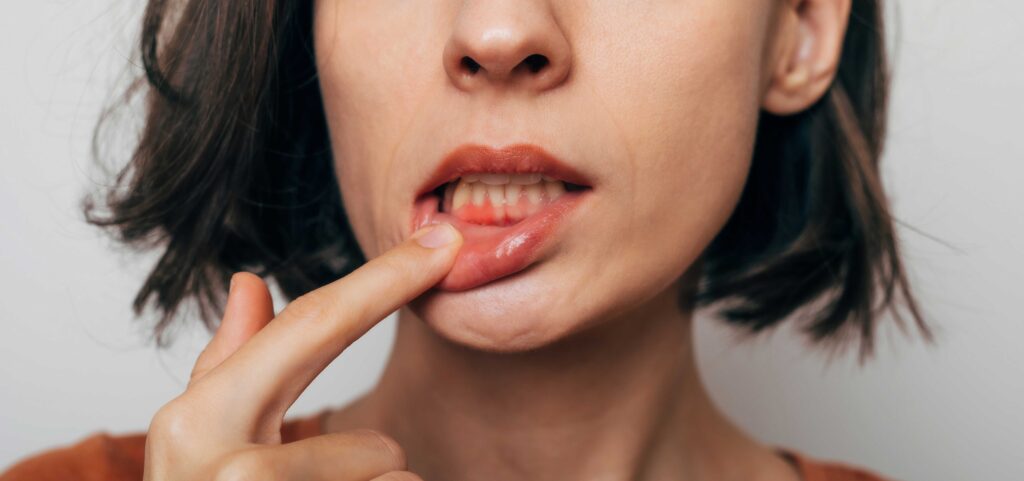
You know that you need to brush twice and floss every day to keep your teeth in optimal condition. However, what about your gum tissue? If you are experiencing gum inflammation or soreness, this is a sign that something isn’t right. Continue reading to learn about some of the common causes of gum irritation and what you can do to restore their health.
Causes of Sore & Inflamed Gums
Here are some of the most common reasons behind gum soreness and swelling:
- Gingivitis: This is the most common cause of gum inflammation. It happens when plaque builds up along your gumline and teeth. Over time, it turns into tartar, resulting in gingivitis.
- Periodontitis: This happens when gingivitis is left untreated. This is a serious infection of gum tissue that can lead to gum recession, tooth loss, and bone loss.
- Pregnancy: Pregnancy causes significant changes in hormone levels. These changes can increase blood flow to the gums, making them more sensitive to swelling.
- Vigorous Brushing: If you are brushing and flossing too hard, you can damage your gums. Extra pressure doesn’t make your mouth cleaner – it just leaves you with enamel erosion and gum recession. When brushing, use soft, circular motions.
- Other Infections: Complications from infected teeth, like a tooth abscess, can lead to swelling near the tooth.
How Can Gum Soreness and Swelling Be Resolved?
There are many at-home steps that you can take to improve your gum health. Here are some of the most effective ones:
- Gently brush and floss to keep the area clean
- Rinse your mouth with salt water to disinfect the area
- Apply cold compresses to reduce swelling
- Stay hydrated to stimulate saliva production
- Refrain from smoking and drinking alcoholic beverages
If your symptoms aren’t reduced with at-home methods, you might need to undergo gum disease treatment. This could include some of the following:
- Medicated Dental Products: Prescription toothpaste and mouthwash may be recommended.
- Scaling & Root Planing: This two-step process reduces the prevalence of harmful bacteria in the mouth. Your dentist starts by clearing away plaque from your teeth and beneath the gumline. Then, they will smooth down the roots of your teeth to allow your gums to heal and reattach.
- Antibiotic Treatment: After scaling and root planing, an antibiotic called Arestin can be placed in your periodontal pocket to combat infection.
- Osseous Surgery: For severe periodontitis, osseous surgery may be necessary. During this procedure, the roots of the teeth are cleaned. Then, your dentist reshapes the surrounding bone tissue. Bone grafting is also necessary.
Gum discomfort is no fun! By caring for your smile at home and discussing your symptoms and concerns with your dentist, you can keep your gums and pearly whites in optimal shape.
About the Author
Dr. Admasu Gizachew earned his dental doctorate from New York University and is committed to continuing education to keep his clinical knowledge and skills sharp. He currently logs nearly 300 hours of continuing education each year. Currently, he is a proud member of numerous professional organizations, including the American Dental Association, New Jersey Dental Association, and the American Academy of Facial Aesthetics. If you are concerned about gum irritation, he would be happy to help. For more information or to schedule an appointment at his Brick Township office, visit his website or call (732) 475-7535.
